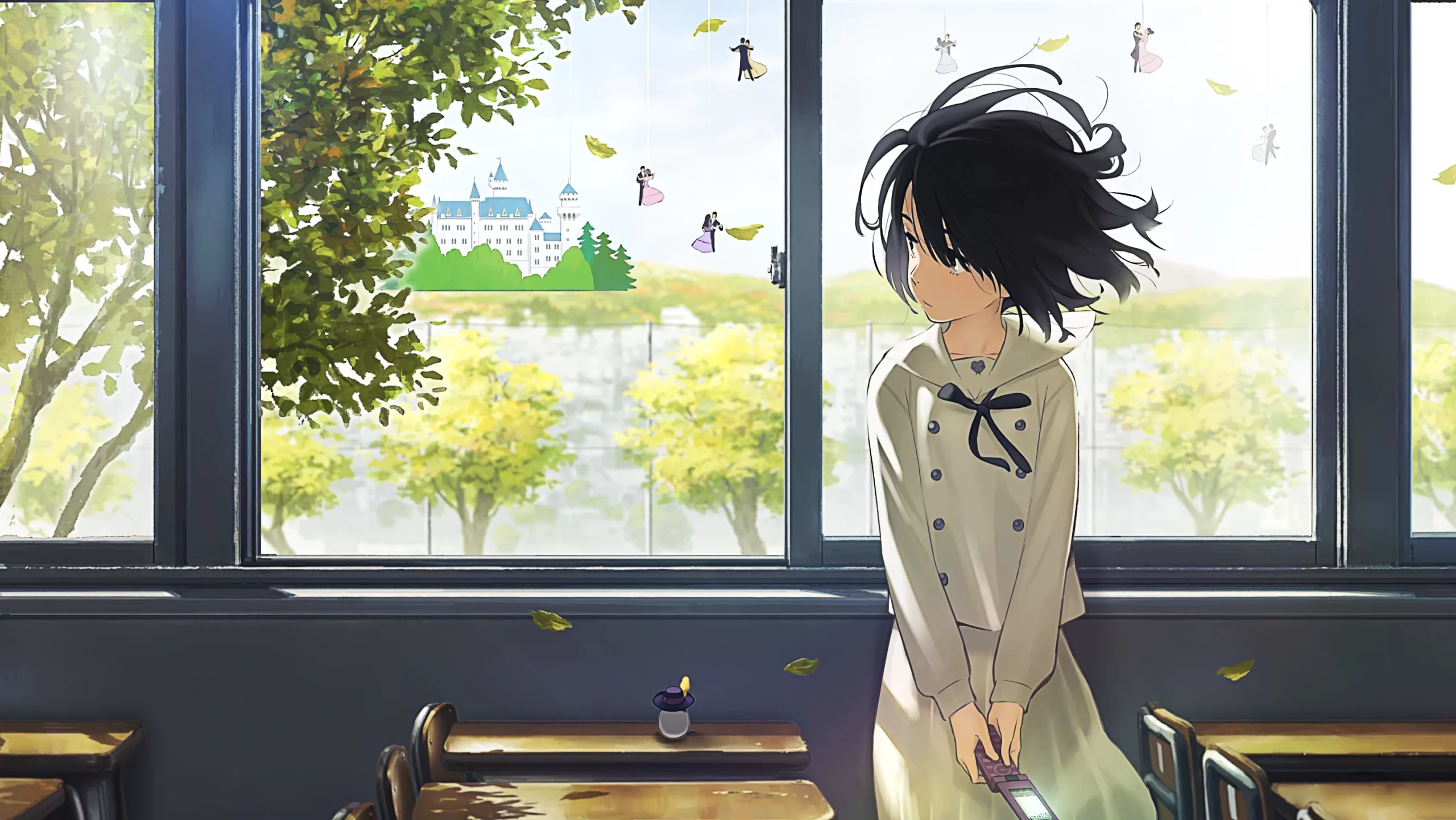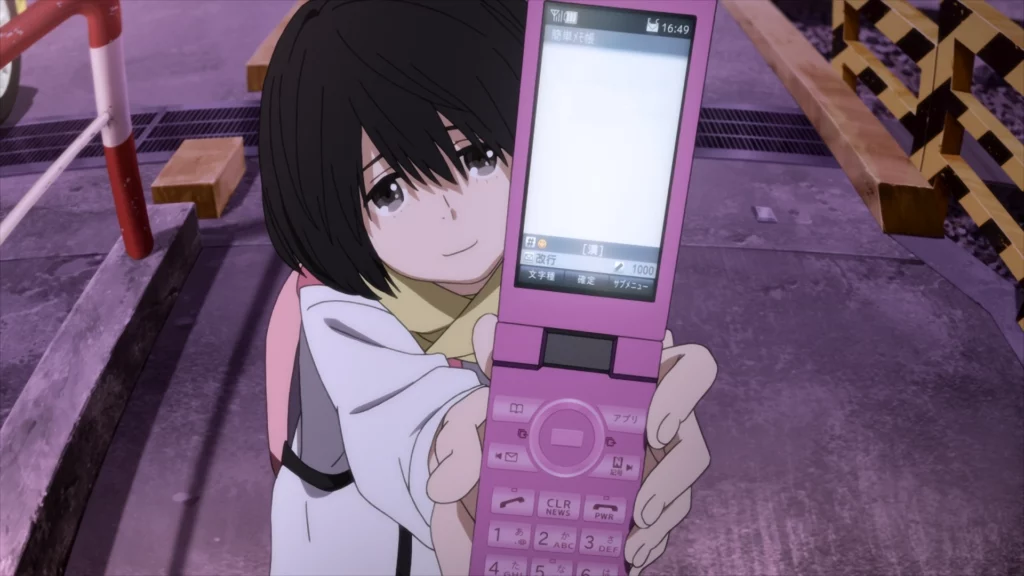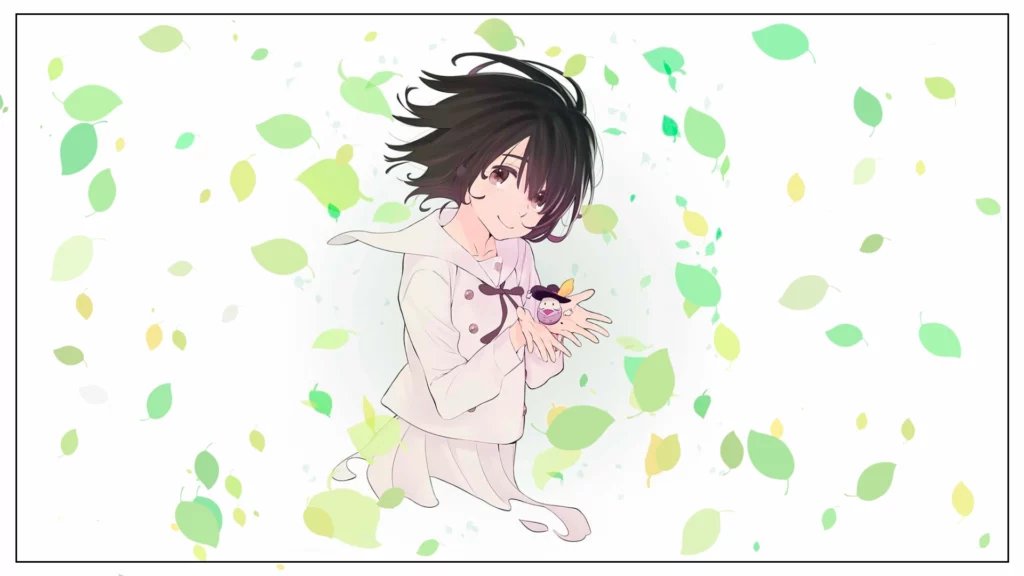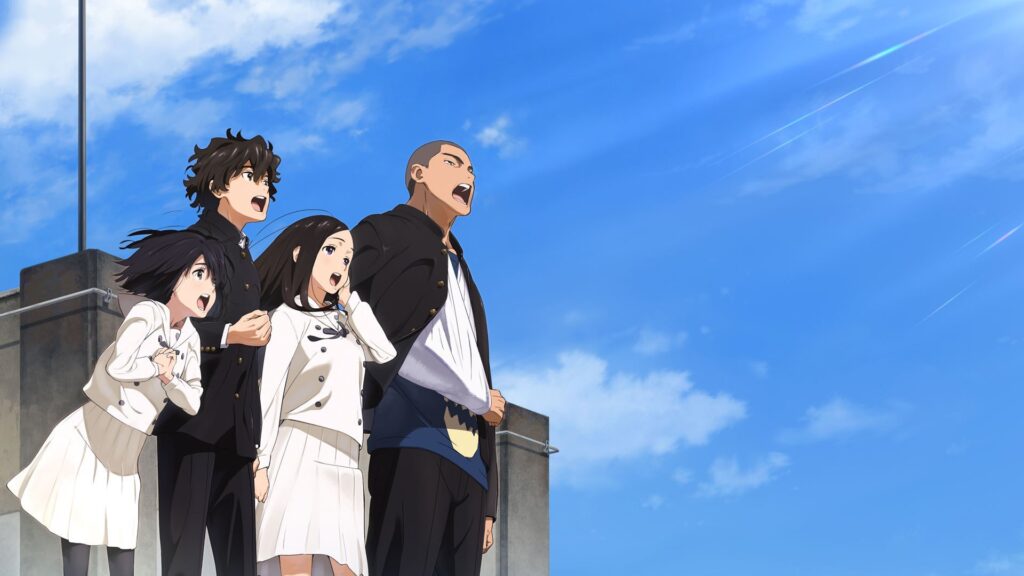You may or may not have hear of this Anime film from 2015 titled The Anthem of the Heart (Kokoro ga Sakebitagatterunda in Japanese). It’s about a girl named Jun Naruse who falls into depression, anxiety, guilt and self-loathing due to a past event where she was blamed. Later, couple of more characters dealing with relationship issues, similar to the main character, are introduced. The film, animated by A-1 Pictures under Tatsuyuki Nagai‘s direction and Mari Okada‘s screenplay, intricately portrays the characters’ development and their struggle with insecurities. Nagai and Okada both some recognizable works done such as Toradora!, Anohana, Maquia, all these heavy hitters and tear-jerking Anime. The film’s music, a significant highlight, complements the theme of singing and features beautiful tones performed by talented voice actors, especially in the emotional climax.
(Side note: Mari Okada has also done the screenplay of Alice to Therese no Maboroshi Kōjō, studio MAPPA‘s newest film.)
The Anthem of the Heart‘s Plot
Jun Naruse used to be a cheerful and talkative girl, her imagination brimming with fairytales, castles, princes, and princesses. One day, her vivid imagination led her to misunderstand her father’s actions, thinking he was a prince leaving a castle with another woman, which turned out to be a love hotel. When she blurted out her misconception, it led to her parents’ divorce. Her father blamed her, telling her it was all her fault with a plain face, and this shattered Jun’s innocent worldview. Feeling responsible, she began to see the world differently, her once magical perspective replaced by self-blame and guilt. In her turmoil, she imagined a magical talking egg cursing her to silence, a symbolic representation of her inner turmoil.
In high school, Jun’s life takes a drastic turn after the traumatic incident. She becomes mute, avoiding interactions with classmates and neighbors, leaving her without any friends. One day, their teacher forms a group comprising troubled students, including Jun, Natsuki Nitou, Daiki Tasaki, and Takumi Sakagami, to perform for the elderly. Although they initially struggle due to various issues, they eventually come together. Takumi, interested in music, attracts Jun’s attention, and despite her inability to speak, they communicate via texts. Jun opens up about her past, and Takumi responds with kindness, encouraging her. Natsuki, still harboring feelings for Takumi, joins the group, while Daiki, initially mocking their efforts, eventually reveals his insecurities after a baseball injury. When Jun stands up for him against criticism, Daiki breaks his tough exterior, acknowledging his vulnerability. Together, they find solace and acceptance within the group.
The Anthem of the Heart‘s Theme
The film delves into a recurring theme—confronting insecurities stemming from past events, in this case, guilt and self-loathing. Though deep down we may know it’s not our fault, external judgment can still weigh us down. Jun experiences a mental breakdown in stages: first, shock and isolation after her peers’ cruel treatment, leading to tears in solitude. Then, acceptance of the outcome prompts her decision to stop speaking altogether, hoping to avoid such pain. However, her encounter with Takumi reignites hope, viewing him as her savior prince from the fairytale. Reality strikes again when he rejects her, prompting her to imagine the magical egg once more. This time, it’s because of not speaking with her mouth but her heart—signifying her singing. Overwhelmed by it, she attempts to run away from the program, convinced her speaking only brings sadness. Despite rejection, Takumi persists, empathizing with her struggles as he overcame similar challenges. Witnessing her plight resonates with him, and he refuses to let her face it alone. Ultimately, Jun’s feelings toward Takumi stem only from her fairytale imagination. She decides to move on by being true to her heart.
With Takumi’s encouragement, Jun’s silence shatters, releasing her pent-up emotions. Finally accepting her true feelings, she sings her heart out during the performance. She learns to accept that the past events were not her fault and she shouldn’t let them define her. By staying true to her emotions, everything begins to align. The performance becomes a poignant portrayal of her inner battle, witnessed and understood by her mother. It also resonates with the other main characters, helping them confront their own struggles. This powerful moment leads to a fitting conclusion in “The Anthem of the Heart.”
After Thought
The Anthem of the Heart or Kokoro ga Sakebitagatterunda is indeed an underrated gem. It explores a theme often overlooked yet prevalent in our lives. Each character receives ample attention and development ties to the end pretty effectively. The visual metaphors and sound design are masterfully crafted that keeps you hooked in. The ending song in the film’s climax is profoundly soul-stirring, thanks to the amazing voice talents delivering it. If you haven’t watched it already, I highly recommend giving it a watch.
Thank you so much for reading ♡. Check this out if you need more anime recommendations. Until next time, take care.




